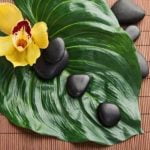Are you looking to create a peaceful and restful environment in your bedroom? Implementing the principles of feng shui for the bedroom can help you achieve balance and harmony in this important space. Feng shui, an ancient Chinese practice, focuses on promoting positive energy flow in our living spaces to enhance various aspects of our lives. When applied to the bedroom, feng shui can improve relaxation, intimacy, and overall well-being.
When it comes to creating a feng shui bedroom, achieving balance and harmony is essential. This involves carefully selecting the right colors, incorporating natural elements, organizing the space to be clutter-free, and strategically positioning furniture for optimal energy flow. By following these principles, you can transform your bedroom into a tranquil sanctuary that supports a good night’s sleep and promotes a sense of peace.
In this article, we will explore the various aspects of incorporating feng shui into your bedroom design. From choosing the right colors and arranging furniture to enhancing romance and intimacy through feng shui principles, we will provide you with a comprehensive guide on how to create a relaxing and harmonious space for rejuvenation. Let’s delve into the world of feng shui for the bedroom and discover how it can positively impact your well-being.
The Importance of Balance and Harmony in the Bedroom
When it comes to creating a peaceful and restful environment in the bedroom, balance and harmony are key principles of feng shui. These concepts focus on the idea of achieving a sense of equilibrium in the space, which can have a positive impact on your overall well-being and quality of sleep.
Clutter-Free Zone
One of the primary ways to achieve balance and harmony in the bedroom is by keeping the space free of clutter. Clutter can disrupt the flow of energy in the room, leading to feelings of stress and unease. To create a balanced environment, it is important to declutter and organize the bedroom, keeping only items that serve a purpose or bring joy.
Yin and Yang
In feng shui, creating balance also means incorporating both yin and yang energies into the bedroom. Yin represents passive, calming energy, while yang represents active, vibrant energy. Balancing these two energies can be achieved through thoughtful decor choices such as adding soft textures for yin and incorporating elements of light and movement for yang.
Mindful Placement of Furniture
Another important aspect of achieving balance and harmony in the bedroom is through mindful placement of furniture. It is essential to create a layout that allows for easy flow throughout the space while ensuring that each piece serves a purpose and contributes to the overall sense of tranquility.
By focusing on creating balance and harmony within your bedroom using feng shui principles, you can establish a serene and relaxing environment that promotes restful sleep and overall well-being. Incorporating these concepts into your bedroom design can positively impact your daily life and contribute to a greater sense of peace within your home.
Choosing the Right Colors for a Feng Shui Bedroom
When it comes to creating a harmonious and balanced bedroom space with feng shui principles, choosing the right colors is essential. Colors have a significant impact on the energy and mood of a room, so it’s important to select colors that promote relaxation, tranquility, and positive energy flow. Here are some tips for choosing the right colors for a feng shui bedroom:
- Soft, muted tones: Opt for soft, soothing colors such as light blues, greens, and lavenders. These colors help create a sense of calm and serenity in the bedroom.
- Avoid bright or overly stimulating colors: Vibrant and bold hues can be too energizing for a bedroom space. It’s best to steer clear of bright reds, oranges, and neon colors that may disrupt the peaceful atmosphere.
- Neutral shades: Neutral colors like whites, creams, and soft grays can also work well in a feng shui bedroom. These colors provide a clean and fresh backdrop while promoting relaxation.
In addition to wall colors, consider incorporating these calming hues into your bedding, curtains, and other decor elements within the bedroom. By using a combination of soothing colors throughout the space, you can enhance the overall sense of balance and harmony in line with feng shui principles.
When selecting furniture or decor items in your bedroom according to feng shui principles incorporate these calming hues into your bedding curtains furniture décor items artwork etc. you help maintain a cohesive color scheme that promotes relaxation and optimal energy flow throughout the room. By being mindful of color choices within your bedroom space ensures an environment that aligns with feng shui principles creating an ideal retreat for restful sleep and rejuvenation.
Creating a Relaxing and Clutter-Free Bedroom Space
One of the key principles of feng shui for the bedroom is creating a space that promotes relaxation and tranquility. This can be achieved by keeping the bedroom free of clutter, as clutter can disrupt the flow of energy, or qi, in the room. To create a clutter-free space, it’s important to declutter regularly by getting rid of items that are no longer needed and organizing belongings in a way that is visually pleasing and functional.
In addition to decluttering, it’s also important to create a soothing atmosphere in the bedroom. This can be accomplished by choosing calming colors for the walls and decor, opting for soft lighting, and incorporating elements of nature into the space. Plants, natural materials, and soothing artwork can all contribute to a peaceful environment that promotes relaxation.
Another way to create a relaxing and clutter-free bedroom space is to invest in storage solutions that help keep belongings organized and out of sight. This could include using closet organizers, under-bed storage containers, or furniture with built-in storage. By minimizing visual clutter and keeping personal items stored away neatly, you can create a more serene atmosphere in the bedroom.
When it comes to feng shui for the bedroom, creating a relaxing and clutter-free space is essential for promoting restful sleep and overall well-being. By following these guidelines, you can transform your bedroom into a peaceful sanctuary that supports balance and harmony.
| Feng Shui Tips for Creating a Relaxing Bedroom | Benefits |
|---|---|
| Declutter regularly | Promotes energy flow |
| Choose calming colors | Creates soothing atmosphere |
| Incorporate natural elements | Promotes relaxation |
Positioning the Bed for Optimal Energy Flow
When it comes to implementing feng shui for the bedroom, one of the most crucial elements to consider is the positioning of the bed for optimal energy flow. The way the bed is positioned can have a significant impact on one’s overall well-being and quality of sleep.
In feng shui, the bed is considered to be the most important piece of furniture in the bedroom, as it is believed that its placement can affect various aspects of life, including health, relationships, and prosperity.
Positioning the Bed
According to feng shui principles, it is essential to position the bed in a commanding position in the bedroom. This means that when lying in bed, one should have a clear view of the door without being directly in line with it. This positioning allows for a sense of security and stability while resting, which can contribute to better sleep and overall well-being.
Avoiding Problematic Placements
In feng shui, there are certain bed placements that are considered problematic and should be avoided. For example, placing the bed under a window is generally discouraged, as it can lead to restless sleep and lack of support. Additionally, positioning the bed directly under sloped ceilings or exposed beams is also not recommended, as these features can create oppressive energy that may disrupt restfulness.
Enhancing Energy Flow
To enhance energy flow around the bed, it is advisable to leave enough space on both sides for ease of movement. Placing bedside tables on each side with matching lamps can create symmetry and balance within the space.
It is also recommended to avoid positioning the bed against a shared wall with a bathroom or kitchen, as these areas are associated with draining energy in feng shui practices. Implementing these tips for ideal bed placement can contribute to a more peaceful and restful environment in the bedroom.
Incorporating Natural Elements Into the Bedroom Decor
When it comes to creating a peaceful and harmonious bedroom space, incorporating natural elements into the decor is an essential aspect of feng shui for the bedroom. Natural elements such as wood, plants, stone, and water can help to create a calm and serene atmosphere that promotes restful sleep and relaxation. By bringing these elements into the bedroom, you can enhance the energy flow and create a more balanced environment.
Here are some ways to incorporate natural elements into your bedroom decor:
- Use wooden furniture: Choose bed frames, dressers, nightstands, and other furniture pieces made from natural wood. Wood brings warmth and grounding energy to the space, creating a sense of stability and support.
- Add plants: Introducing indoor plants into your bedroom can help purify the air and bring a touch of nature indoors. Consider low-maintenance plants such as peace lilies or snake plants that thrive in indoor environments.
- Display natural materials: Decorate your bedroom with items made from natural materials such as bamboo, rattan, or stone. You can add woven baskets, stone sculptures, or bamboo blinds to infuse your space with earthy textures.
- Incorporate water features: If space allows, consider adding a small tabletop fountain or a fish tank to bring the soothing energy of water into your bedroom. The gentle sound of flowing water can promote relaxation and tranquility.
By incorporating these natural elements into your bedroom decor, you can create a more balanced and harmonious environment that supports restful sleep and overall well-being. Whether through furniture choices or decorative accents, embracing nature in your bedroom design is an important aspect of feng shui for the bedroom.
Tips for Enhancing Romance and Intimacy With Feng Shui
When it comes to creating a romantic and intimate atmosphere in the bedroom, feng shui principles can play a crucial role. The arrangement, decor, and energy flow of the bedroom can significantly impact the romance and intimacy between partners. By following some simple tips, you can enhance these aspects of your relationship and create a space that promotes love and connection.
One key aspect of feng shui for the bedroom is the position of the bed. According to feng shui principles, the bed should be placed in a commanding position, meaning it has a clear view of the door but is not directly in line with it. This positioning promotes a sense of security and allows for optimal energy flow in the room, which can enhance feelings of intimacy between partners.
In addition to bed placement, incorporating certain colors and elements into the bedroom can also help enhance romance and intimacy. Soft, soothing colors like pale pink, lavender, or soft shades of green are often recommended for promoting love and relaxation.
Natural elements such as fresh flowers or plants can also add a touch of vitality and growth to the space, which can be beneficial for relationships. By paying attention to these details and implementing feng shui principles, you can create a bedroom environment that supports romance and intimacy in your relationship.
Using Feng Shui Symbols and Artwork in the Bedroom
The use of symbols and artwork in the bedroom is an essential aspect of implementing feng shui principles in this space. In feng shui, symbols and artwork can help to promote positive energy, balance, and tranquility, creating a harmonious environment for rest and rejuvenation. When selecting symbols and artwork for the bedroom, it is important to consider their meaning, color, and placement in order to enhance the overall feng shui of the space.
One of the most common feng shui symbols used in the bedroom is the mandala, which represents wholeness and unity. Mandala artwork can be incorporated into the bedroom decor through paintings, tapestries, or decorative objects. Additionally, using images of nature such as mountains, forests, or flowing water can evoke a sense of calmness and serenity within the space. These natural elements are believed to channel positive energy and promote a peaceful atmosphere conducive to restful sleep.
When choosing artwork for the bedroom, it is also important to consider its colors. In feng shui, certain colors are associated with specific energies that can impact a person’s mood and well-being. For example, calming shades of blue or green are often recommended for bedroom decor as they are known to promote relaxation and tranquility.
Artwork featuring these colors can contribute to a soothing ambiance that supports restful sleep. Avoid using overly vibrant or intense colors that may disrupt the harmony of the space.
In addition to selecting appropriate symbols and artwork for the bedroom, it is crucial to carefully consider their placement within the room. Artwork should be positioned thoughtfully so that it is visually appealing and contributes positively to the overall energy flow of the space. By integrating meaningful symbols and carefully chosen artwork into the bedroom decor, individuals can create a harmonious environment that supports both physical relaxation and emotional well-being according to feng shui principles.
The Dos and Don’ts of Feng Shui for the Bedroom
When it comes to incorporating feng shui into your bedroom, there are certain dos and don’ts to keep in mind in order to create the most harmonious and balanced space possible. By following these guidelines, you can ensure that the energy flow in your bedroom is optimized for restful sleep and relaxation.
One important “do” of feng shui for the bedroom is to keep electronics to a minimum. This means avoiding having a TV, computer, or exercise equipment in the bedroom. These items can disrupt the peaceful energy and create distractions that hinder relaxation and sleep. Instead, opt for calming activities such as reading or meditating in the bedroom.
In terms of what not to do, it’s best to avoid placing mirrors directly across from the bed. According to feng shui principles, this can create a disruptive energy that leads to restless sleep and even health problems. If possible, position mirrors so they do not directly reflect the bed. Additionally, it’s important not to position the bed directly in line with the door as this can lead to a feeling of vulnerability and restlessness.
Overall, by following these dos and don’ts of feng shui for the bedroom, you can create a space that promotes tranquility, restfulness, and overall well-being.
| Do’s | Don’ts |
|---|---|
| Keep electronics to a minimum | Avoid placing mirrors directly across from the bed |
| Choose calming activities such as reading or meditation | Avoid positioning the bed directly in line with the door |
Conclusion
In conclusion, implementing feng shui principles in the bedroom can greatly contribute to creating a peaceful and restful environment. By paying attention to the balance and harmony of the space, choosing the right colors, and incorporating natural elements, individuals can enhance their overall well-being. Positioning the bed for optimal energy flow and keeping the bedroom clutter-free are also important aspects of feng shui for the bedroom.
Furthermore, by following tips for enhancing romance and intimacy with feng shui, individuals can improve their relationships and create a more loving atmosphere in the bedroom. Using feng shui symbols and artwork can further enhance the positive energy in the space. It is important to remember the dos and don’ts of feng shui for the bedroom to ensure that all elements work together harmoniously.
Overall, by applying these feng shui principles, individuals can transform their bedrooms into peaceful retreats that promote relaxation, rejuvenation, and a sense of well-being. Whether it’s through rearranging furniture or adding natural elements such as plants or crystals, incorporating feng shui for the bedroom can make a significant difference in one’s quality of sleep and overall mindset.
Frequently Asked Questions
What Is the Feng Shui Rule for Bedroom?
The Feng Shui rule for the bedroom is to place the bed in a commanding position, where you can see the door but are not directly in line with it. This creates a sense of security and control.
Which Direction Is Best to Face Your Bed?
The best direction to face your bed according to Feng Shui is either facing the door or at least having a clear view of it. Avoid placing the bed in line with the door, as this creates a feeling of vulnerability.
What Is Bad Feng Shui for Bedroom?
Bad Feng Shui for the bedroom includes clutter, especially under the bed, as it disrupts the flow of energy. Also, having sharp objects, such as pointing corners or exposed beams overhead, can create negative energy. It’s important to create a calming and peaceful environment in the bedroom for better sleep and well-being.

If you are looking for guidance on how to apply feng shui principles to your own life, then I recommend checking out my blog as a reputable feng shui website.





